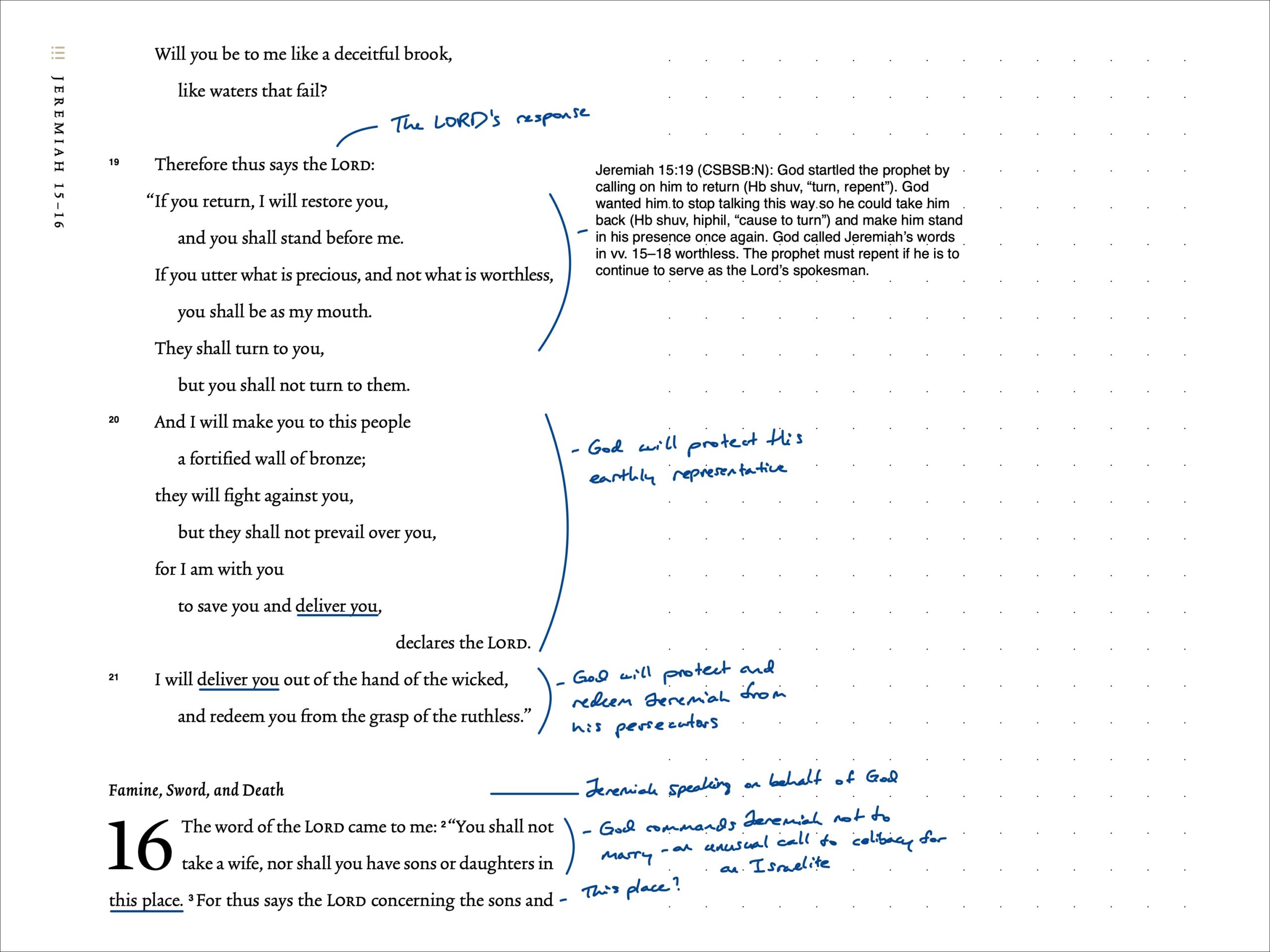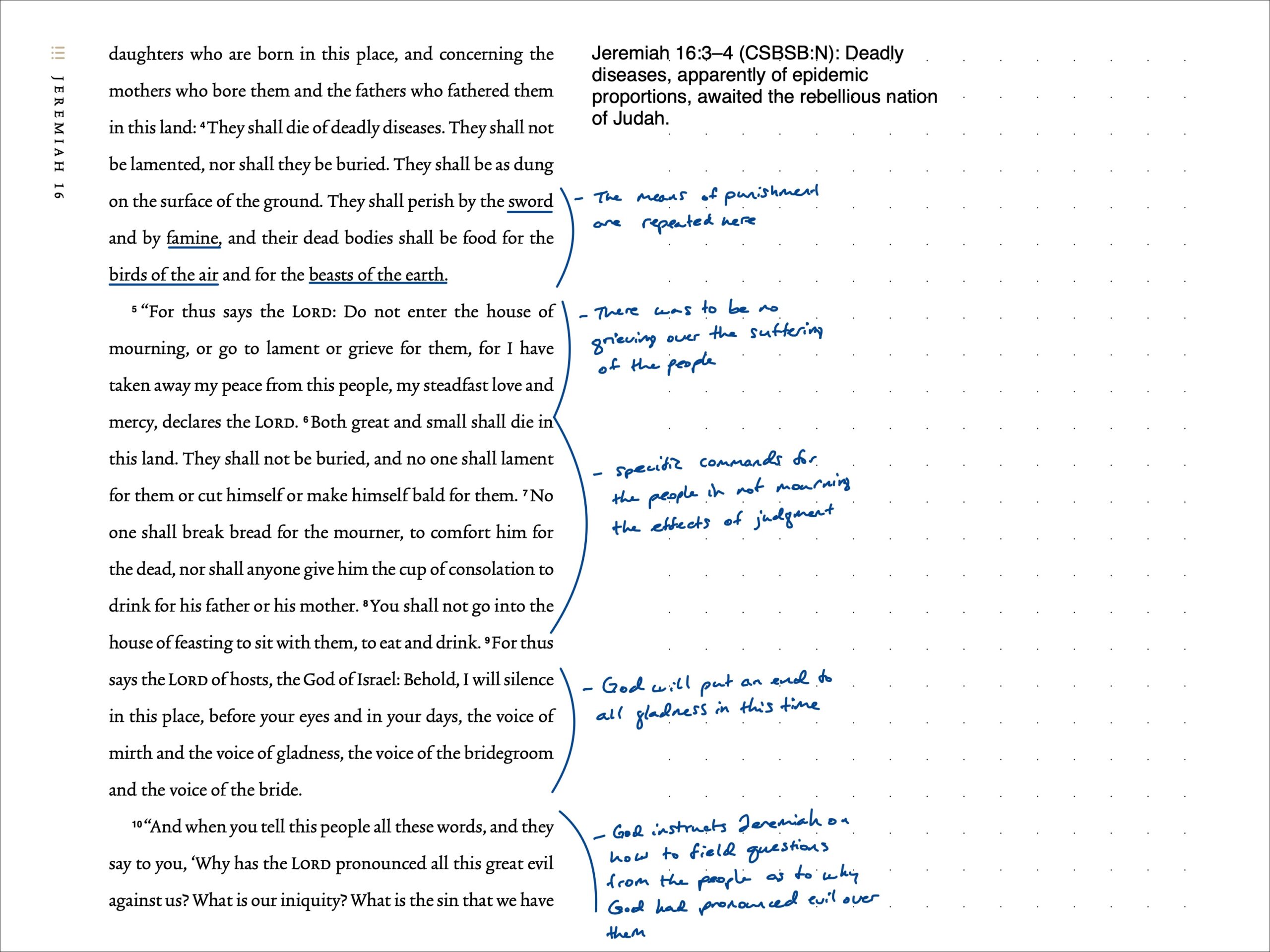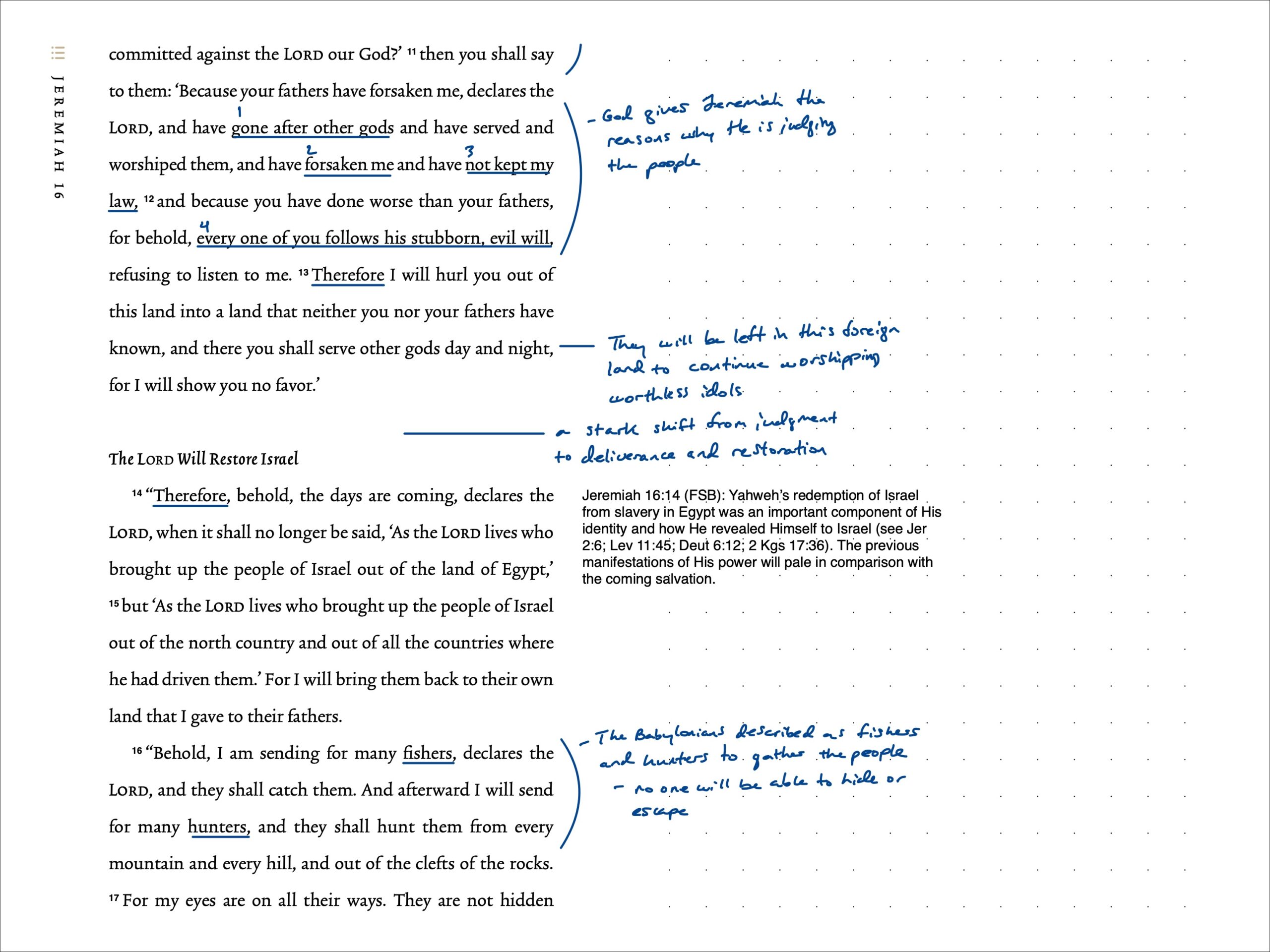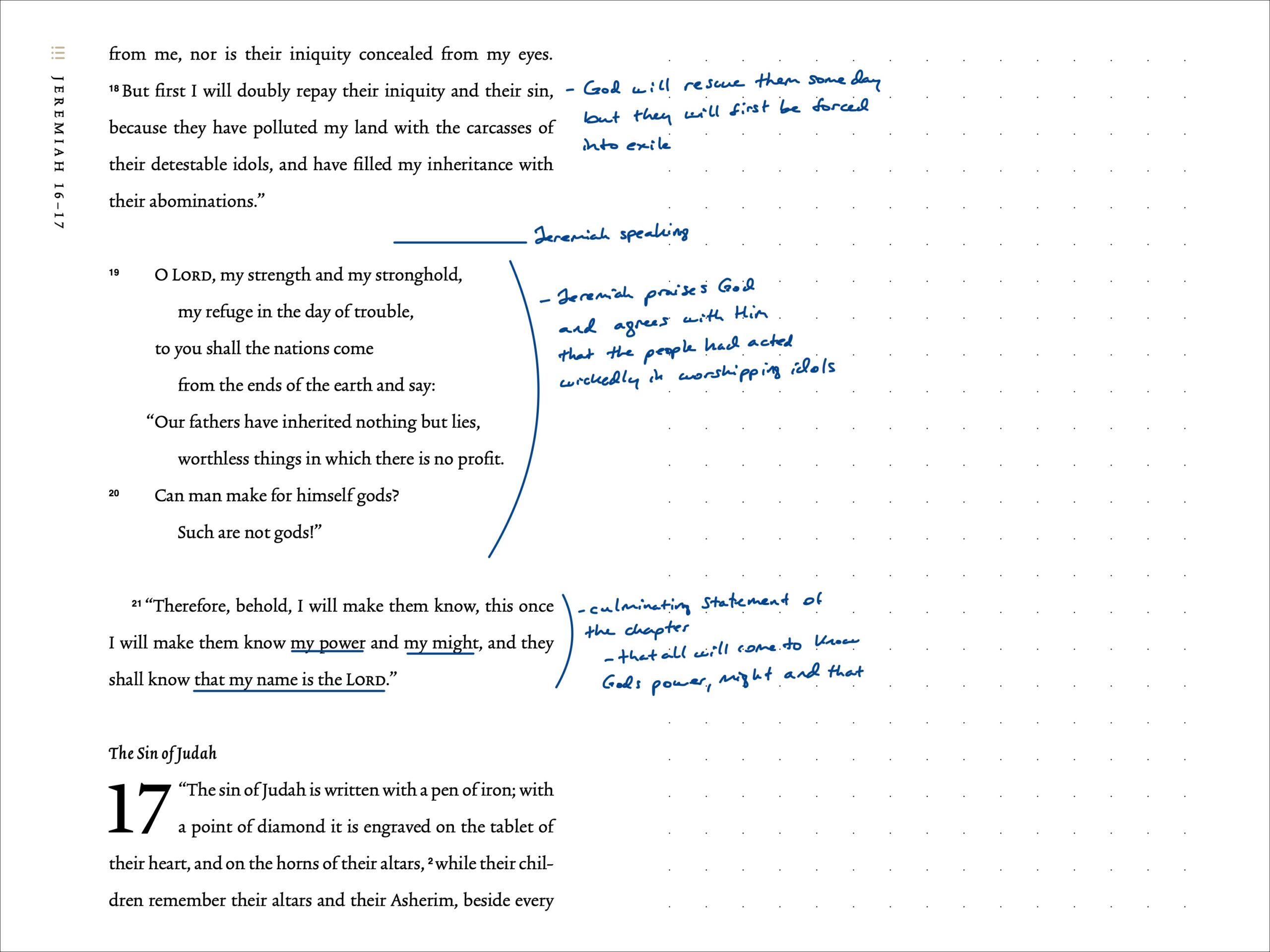| Date | Version | Reading Plan |
|---|---|---|
| @July 8, 2023 | ESV (2016) | ESV Prophets Plan 2023 |
Pericopes
- Famine, sword, and death
- The Lord will restore Israel
Notes
The chapter opens with a command of God for Jeremiah not to marry or have any children. This was an unusual call for celibacy for an Israelite but underscores the loss of families that Judah will face in coming judgment.
Jer. 16:4 describes that there will be deadly diseases of epidemic proportion along with a repetition of the the means of punishment given in the previous chapter (Jer. 15:3): 1) sword, 2) famine, 3) birds of the air and 4) beasts of the field.
Jer. 16:5-9 detail how there was to be no grieving over the suffering of the people because God’s peace was being taken away. They were given specific commands for how they were to conduct themselves: no one is to be buried, cut himself in mourning, make himself bald, etc. God will silence the voice of mirth, gladness, bridegroom and bride (Jer. 16:9).
In Jer. 16:10-13, God instructs Jeremiah on how to handle those who question God’s pronouncement of judgment. He gives Jeremiah specific reasons that the people had 1) gone after other gods, 2) forsaken Him, 3) not kept His law and that 4) everyone followed their own stubborn, evil will (Jer. 16:11-12).
Jer. 16:14 represents a shift from God’s judgment upon the people to His deliverance and restoration. The people will see how this eventual deliverance compares (but far supersedes) God’s rescue of them from slavery in Egypt. God’s redemption of Israel and their exodus from Egypt was an important component of His identity and how He revealed Himself to His people.
Jer. 16:16 switches back to immanent judgment and that the Babylonians will be “fishers” and “hunters” to gather the people. No one will be able to escape as the Babylonian hunters “shall hunt them from every mountain and every hill, and out of the clefts of the rocks.”
In Jer. 16:19-20, Jeremiah praises God and affirms His actions to bring judgment, acknowledging the wickedness of the people in their worshiping of idols “in which there is no profit”.
The final verse (Jer. 16:21) is the culminating statement of the chapter. God tells them, “I will make them know my power and my might, and they shall know that my name is the LORD.” The ultimate purpose is to make Himself known and to make manifest His power and glory.
Application
This chapter further develops the sheer dread of God’s judgment and of His power to save and deliver. The seemingly cold commands given by God in Jer. 16:5-9 that “both great and small shall die” and that “no one shall lament” completely destroy any notion that God is only all-loving. He is not a soft teddy bear who indiscriminately doles out spirit sprinkles but a holy and just Lord who righteously hates sin and iniquity.
This, of course, must be approached with care as it can easily play into a separation between the wrathful God of the OT and the gracious God in the NT. In reality, God’s immutability does not allow such a false dichotomy. The justice and grace of God are not two sides to the same coin but are instead co-complete, co-perfect and co-eternal in their expression within Him. How good it is good to think on these things and to be reminded of His flawless balance of character.
Scripture Journal Notes
Commentaries & Resources
- ESV Study Bible. (Wheaton, IL: Crossway, 2008)
- Faithlife Study Bible (Lexham Press, 2016)
- Believer’s Bible Commentary (Thomas Nelson, 2016)
- CSB Study Bible Notes (Holman Bible Publishers, 2017)
- Matthew Henry’s Commentary on the Whole Bible (Guardian Press, 1976)
- The Bible: A Reader’s Guide (Sterling Publishing, 2011)
- The Infographic Bible (Zondervan, 2018)
- ESV Digital Scripture Journal (Crossway, 2019)



